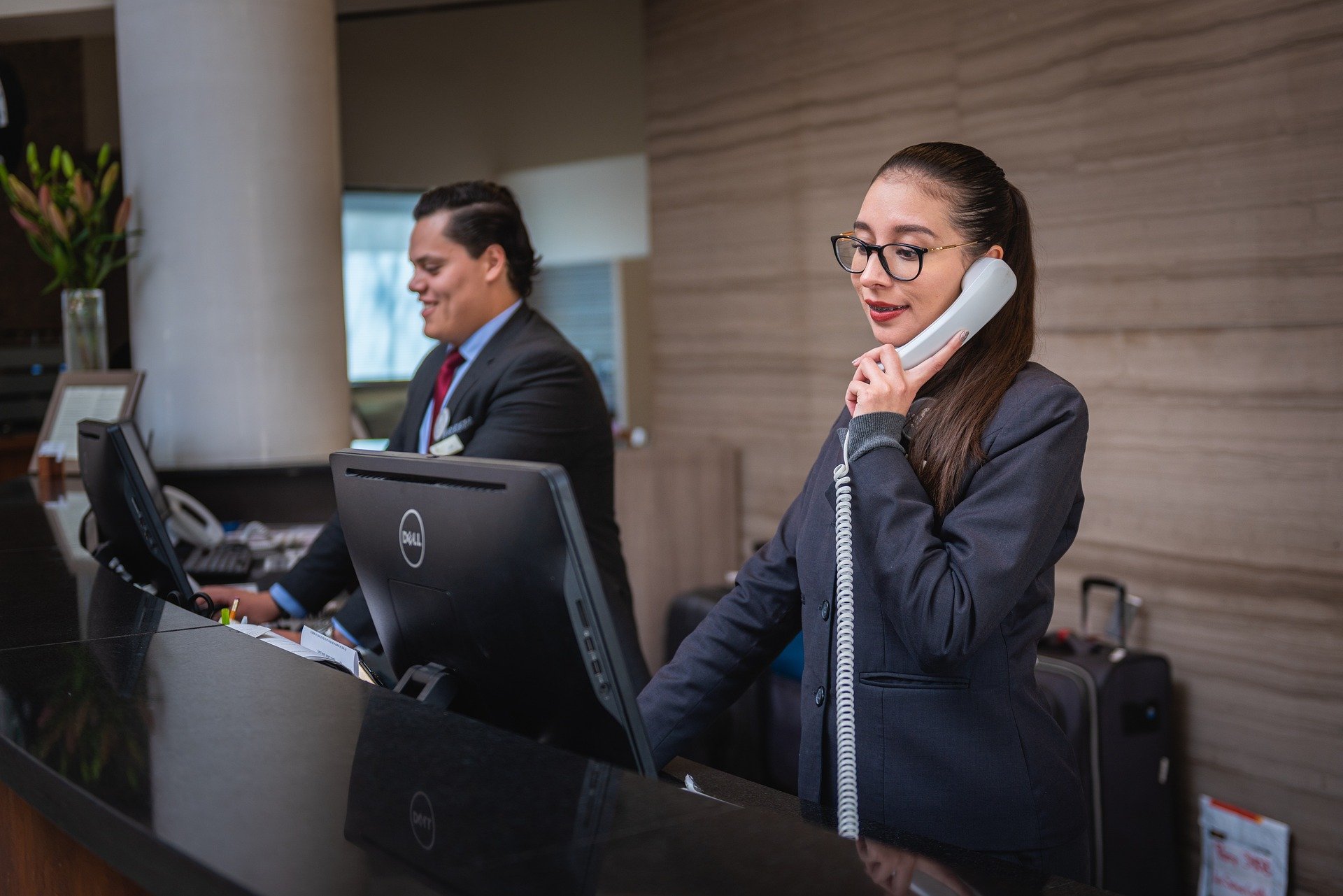Radisson Blu Hotel & Spa, Cork, Now Live With Allegro V7
We are proud to welcome Radisson Blu Hotel & Spa, in Cork, Ireland, to the Family of hotels assisted with Allegro V7 and self-service technology!

Hospitality has existed for as long as we can remember – from the first days of civilization. We have always been on the move. People travel for work, to visit relatives, have fun and discover the beauties of our world.

While our industry has adapted with new trends & technology over time, one part of the guest journey has remained almost untouched - checking in. The good old front desk has been a barrier standing between guests and staff for thousands of years. Behind a relative feeling of conservatism hides some good reasons and some misunderstandings.
Not so long ago, finding a hotel in an exotic location was complicated. Tourist guidebooks were our best tools, in addition to travel agents who could share feedback from prior guests.
Our fear of booking a room in a dirty motel at the end of the world pushed us to be extra cautious. International brands were born with that one unique promise: you can travel to the end of the world and be sure to find consistency of quality if you book in a Hilton or Sheraton. And their growth was spectacular..png?width=248&height=372&name=MicrosoftTeams-image%20(80).png)
Everything changed in the early 2000s with the birth of search engines and hotel websites. Using Google, Booking, Expedia, TripAdvisor… a traveler can do their own research, and find dozens of options in a few clicks, look at guest reviews and make an educated choice.
This completely changed the market dynamics. Hotel chains had to accept that travelers like to feel the “local” experience, and that era of mass standardization of hotel products had ended. Even international brands today offer a local flavor in their portfolio.
With the first digital barrier came the second one. Now that the hotel offer was there, guests wanted a way to book their room and ensure they were getting the best possible deal.
Price engines were extraordinarily successful and grew at a pace we could not have imagined. In less than two decades, digital bookings rose to over 80% of all reservations made online. If you exclude groups that travel mainly through travel agents and some direct hotel reservations, you will see that almost 100% of travelers today use digital booking to reserve a room.
That second revolution has hugely impacted our industry, forcing hotels to “compare well” to other hotels. Pricing had to be transparent, and the importance of guest reviews has grown to become the number one driver for travelers to decide where to stay.
Our sister industry, travel, passed this barrier as quickly as the two firsts: airlines, for example, started to invest massively in self-check-in technology in 2005. They first brought self-check-in kiosks to airports and rapidly added the ability to self-check-in online and later also mobile check-in for their customers.
The airline industry had a very clear vision. They wanted to impose a change of habits on us. And they have succeeded! In less than ten years, 90% of short trips travelers used self-check-in, and let’s be honest - we love it! Airlines could not remove this service, or they would be facing a customer revolt!
Some hotels have followed the same path. Those who have adopted self-check-in as an option for their guests usually see consistent results. Looking at 2,000+ deployed properties, we have observed that guests largely adopt mobile check-in, with results showing average usage of 30-40%. Kiosk check-in then adds its own 20-40% usage. Some hotels that push hard for self-check-in reach a combined 90%+ usage! But they are still pioneers, and a majority of the successful implementations are for new properties.
First, we need to understand that checking in is the first, and sometimes the only, contact between the hotel and the guest. Imagine that manual check-in is replaced by self-service could mean losing this important guest-staff touch altogether.
This is the first misunderstanding. The fact that guests may choose self-check does not mean that no one is there to welcome them upon arrival. The same applies during the stay. If the staff were not focusing most of their time on checking-in other guests, they would be available to interact with staying or arriving guests in a much more valuable and personal way. Their role would evolve from a “check-in processor to “Customer Success” and “Concierge” which we could all benefit from.
.png?width=1536&height=1025&name=MicrosoftTeams-image%20(82).png)
Second, when looking at a traditional front-desk check-in, studies show that 75% of the time spent at the front desk by a guest does not bring any extra services to the guest as the staff is focused on their computer to process the check-in, the credit card or checking your ID.
Digital self-check-in would allow guests to perform most of these tasks prior or even upon arrival. Self-check-in on mobile or kiosk would free up staff to focus on the remaining guests opting for a manual check-in, bringing premium service: a warm welcome, some local tips, and a genuinely personal guest experience.
Third, hotels are not airports. They bring diversity in size, pricing, and experience that is much richer. Because each hotel is different, the guest experience must be unique. Therefore, each hotel must find its own balance between personal and digital guest experiences.
Two things we know for sure: One, it will be harder and harder to find qualified staff for the front desk, and optimizing the guest experience is a requirement; Two, guests will be driving their own experience, and hotels will be forced to adjust – and not the other way around.
And with this change - the third barrier will be history!

We are proud to welcome Radisson Blu Hotel & Spa, in Cork, Ireland, to the Family of hotels assisted with Allegro V7 and self-service technology!

We are proud to announce the release of Allegro Cloud v7.17.0 This is our first major release in 2024 and includes several changes to make our...

Discover the secrets of entrepreneurship with Michel Lavandier, the President and Founder of Ariane Systems, a visionary with over 40 years of...

As part of our “Expert Insights” series, we had the opportunity to talk to Laurent Cardot, Founder and CEO of Ariane Systems, to understand the...

As part of our “Expert Insights” series, we had the opportunity to talk to Ronald Journo, Director of Sales France at Ariane Systems, to understand...

Laurent Cardot As part of our “Expert Insights” series, we had the opportunity to talk to Laurent Cardot, Founder and CEO of Ariane Systems... here's...